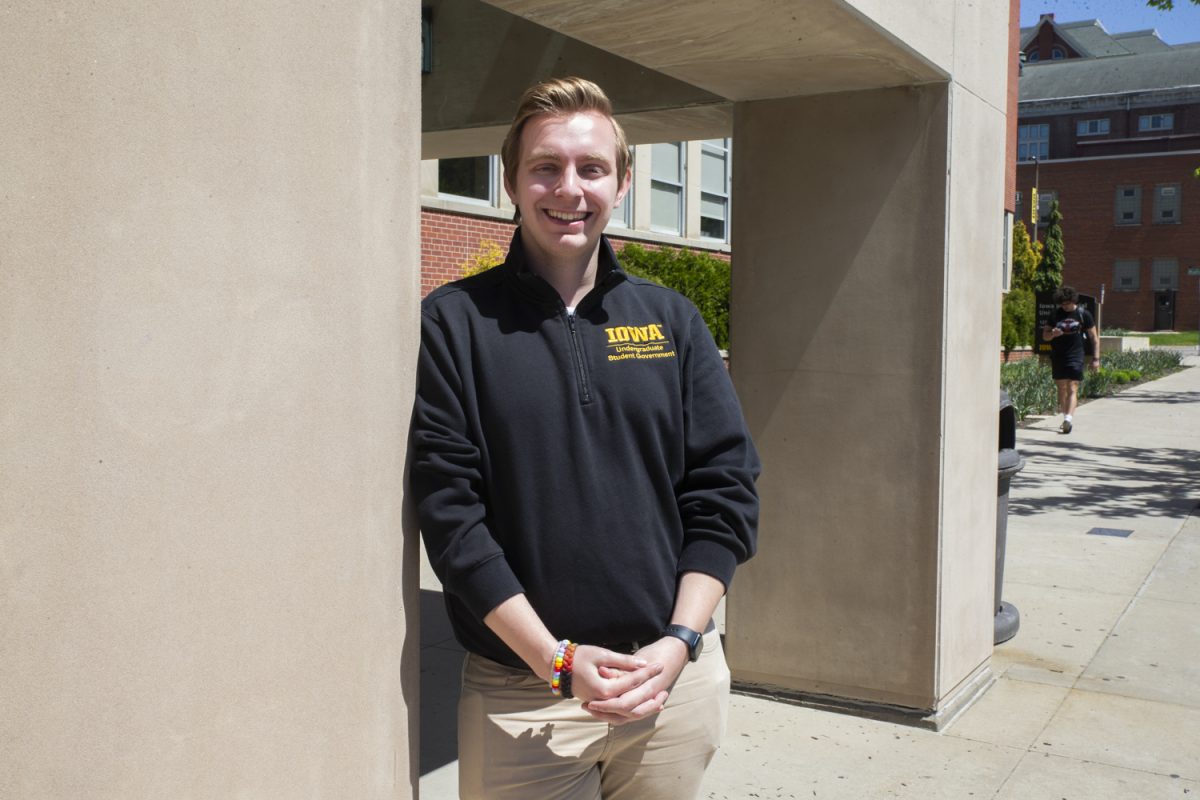University of Iowa professor Calvin Carter could be at the forefront of new treatments for Type 2 diabetes, though his discoveries were almost entirely by accident.
While working in the lab of UI professor and geneticist Val Sheffield, Carter studied inherited eye diseases associated with blindness. The two were mainly focused on a disease called Bardet-Biedl Syndrome, or BBS, which causes a mutation in the genes that code for cilia, which are tiny hair-like antennae on their cells. People with the disease often experience traits like obesity and Type 2 diabetes.
Carter proposed using energy from magnetic fields to compensate for the cells’ lack of cilia. He said animals and humans innately have receptors for magnet fields built into their bodies, which is how birds migrate to the same nest every year — the directions are ingrained in their bodies.
While growing up, Carter also expressed an interest in 5G internet and how magnetic fields and invisible waves could affect our bodies.
“I used to play video games, and I would sit next to our family’s Wi-Fi router,” he said. “My mom, a Polish immigrant, would come up with a wooden spoon and hit my brother and I on the wrist and say, ‘Hey, be careful. Don’t sit too close to that thing.’”
Sheffield gave Carter the green light to start experimenting with magnetic fields, and Carter made metal coils to start experiments, primarily using mice.
At the same time graduate student Sunny Huang, was interested in focusing more on the diabetes aspect of BBS and asked Carter to borrow some of his mice that had diabetes. But what she found was that all of the mice had normal blood sugar.
Type 2 diabetes causes irregular blood sugar levels from insulin resistance developed over time. Elevated blood sugar can lead to various health complications if untreated. Currently, the only known way to lower blood sugar is through body-produced insulin or an external injection.
At first, Carter and Sheffield were in disbelief, but when Huang tested the mice again, she found that all the mice that had been treated in the magnetic coils had normal blood sugar.
After their discovery in 2020, the team worked for two years to test how magnetic fields can be used to treat people with Type 2 diabetes.
“We didn’t think anyone would believe this,” Sheffield said. “Sometimes serendipity happens in science, and you can discover stuff if you pay attention.”
After testing, Carter started a medical technology company called Geminii Health and received a patent for the treatment called “Therapeutic Systems using Magnetic Fields” with the help of the Iowa Research Foundation.
“The whole intention of it is to bring this out of the lab and into the community,” Carter said. “Our goal at our company is to harness these discoveries to help people, and one of the ways that we’re doing so is by treating some of the most common and deadly diseases in the world.”
Sheffield also emphasized the importance of medical companies in the science field.
“It’s so important to take scientific discoveries that are found in an academic setting and take them to treatment, and academics isn’t very good at doing that,” he said.
The team is now working to discover the best method to deliver the treatment to patients as they prepare to start clinical trials in about a year. Carter said he’s talked to many people in the community with Type 2 diabetes to see what would be the most convenient treatment form for them.
Right now, the most likely treatment will consist of some kind of apparatus built around a patient’s bed so they can be treated while they sleep. He explained this treatment method is much more feasible than taking several medications and insulin injections every day.
“There’s a lot of good diabetes treatments,” Carter said. “The challenge is that all of them have limitations. In an ideal world, what this technology allows is for somebody, essentially, to use a remote control to change how somebody’s body processes sugar.”
RELATED: UI research leads to possible treatment for diabetes, fibrosis
Having experienced the difficulty of these cumbersome diabetes treatments in her family, Huang said the new magnetic field treatment would take a huge weight off of patients.
“I actually have a lot of family members who suffer from Type 2 diabetes, and I saw them struggling with doing their insulin injections and remembering to take pills,” she said. “I think that was really a huge motivator to find ways that are easier, that fit into patients’ lifestyles better, because I saw firsthand how difficult it is to keep to your regimen.”
According to Sheffield, magnetic fields may eventually be able to treat other diseases like cancer and Alzheimer’s. Similar to BBS, these diseases deal with the same issue of cells having too much oxygen, and the magnetic fields reduce the oxygen in cells. Sheffield said the team just needs to find out why that is.
Until then, he said he’s looking forward to seeing the team’s findings have a real-world effect.
“At this point, we really haven’t helped anybody with this,” he said. “We’ve helped some mice, but the goal is to help people.”
















